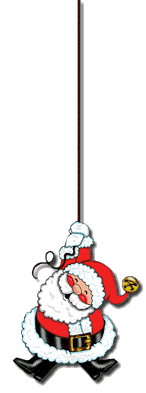Conditionals have 2 parts: an if clause and a main clause.
1) If you press this button, the windows opens.
With the knows delivered above, you'll can understand the First Conditional.
I. First Conditional: The first conditional (also called conditional type 1) is a structure used for talking about possibilities in the present or in the future.
Note about Second Conditional:
If Clause Main Clause
OR
The window opens if you press this button.
Main Clause If Clause
2) If you freeze water, it turns into ice.
If Clause Main Clause
OR
It turns into ice if you freeze water.
Main Clause If Clause
3) We will be later if you get up early.
Main Clause If Clause
OR
If you get up early, we will be late.
If Clause Main Clause
With the knows delivered above, you'll can understand the First Conditional.
I. First Conditional: The first conditional (also called conditional type 1) is a structure used for talking about possibilities in the present or in the future.
A first conditional sentence consists of two clauses, an "if" clause and a main clause:
Example:
If you study hard, you will pass the final exam.
If Clause Main Clause
Note: If the "if clause" comes first, a comma is usually used. If the "if clause" comes second, there is no need for a comma. Example:
You will pass the final exam if you study hard.
Main clause If clause
Examples using the first conditional:
a) If it's sunny, we'll go to the park. Maybe it will be sunny — that's possible.
b) Paula will be sad if Juan leaves. Maybe Juan will leave — that's possible.
c) If you cook the supper, I'll wash the dishes. Maybe you will cook the supper — that's possible.
Notes about first conditional:
The 'if' clause can be used with different present forms.
- If I go to New York again, I'll buy you a souvenir from the Empire State Building.
- If he's feeling better, he'll come.
- If she hasn't heard the bad news yet, I'll tell her.
The "future clause" can contain 'going to' or the future perfect as well as 'will'.
- If I see him, I'm going to tell him exactly how angry I am.
- If we don't get the contract, we'll have wasted a lot of time and money.
The "future clause" can also contain other modal verbs such as 'can' and 'must'.
- If you go to New York, you must have the cheesecake in Lindy's.
- If he comes, you can get a lift home with him.
II. Second Conditional: Unreal possibility or dream
The second conditional is like the first conditional. We are still thinking about the future. We are thinking about a particular condition in the future, and the result of this condition. But there is not a real possibility that this condition will happen. For example, you do not have a lottery ticket. Is it possible to win? No! No lottery ticket, no win! But maybe you will buy a lottery ticket in the future. So you can think about winning in the future, like a dream. It's not very real, but it's still possible.
| IF | condition | result |
| past simple | WOULD + base verb | |
| If | I won the lottery | I would buy a car. |
Notice that we are thinking about a future condition. We use the past simple tense to talk about the future condition. We use WOULD + base verb to talk about the future result. The important thing about the second conditional is that there is an unreal possibility that the condition will happen.
Here are some more examples:
| IF | condition | result |
| past simple | WOULD + base verb | |
| If | I married Mary | I would be happy. |
| If | Ram became rich | she would marry him. |
| If | it snowed next July | would you be surprised? |
| If | it snowed next July | what would you do? |
Note about Second Conditional:
Sometimes, we use should, could or might instead of would, for example: If I won a million dollars, I could stop
working.
working.





Nice entry about conditionals
ReplyDeletegood blogg ;)
Good entry, explain the subject very well, good post.
ReplyDeletevery nice blogg ! =)
ReplyDelete